overview
The Principles for Peace
The eight Principles for Peace offer a practical framework to guide policies and decisions at all levels of the peacemaking space. They have an overarching goal of making peacemaking processes more effective, coherent, accountable, and durable.
The Principles for Peace serve as an important diagnostic tool that can be used to systematically measure and evaluate the quality of peacemaking initiatives over time. They represent a holistic, ethical vision of sustainable peace that can be concretely operationalised to improve peacemaking policies and outcomes.
Click to hear the endorsement of the Principles from Bernardo Arévalo, President of Guatemala.
The first three principles — dignity, solidarity, and humility — provide an ethical compass to guide the individual and collective actions and decisions of peacemakers while also building trust and respect between all parties.
The fourth and fifth principles — enhancing legitimacy and accountable security — are the overarching objective and goal towards which the ethical compass points. They serve as a foundation for reaching lasting peace.
The final three principles — promoting pluralism, adopting subsidiarity, and embracing integrated and hybrid solutions — embed the practical commitments and partnerships needed for strengthening peacemaking efforts, involving all actors in the peacemaking space.
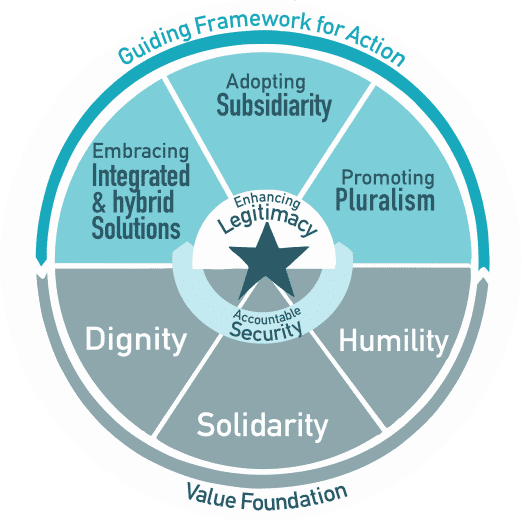
The Principles for Peace

Principle 1
Dignity
Read Less
Dignity is about the fair and equal treatment of all actors in peace processes.
It is only by considering the interests, views, and needs of all persons that a process, and in turn the peace itself, can be legitimate.

Principle 2
Solidarity
Read Less
Solidarity is grounded in the view that the peacemaking success depends on the contributions of each set of actors.
There must be an acceptance of the need to share burdens, risks, and resources, which requires solidarity with all those involved in the peacemaking process.
The causes and consequences of conflicts are often global in nature; therefore, solutions also must be.

Principle 3
Humility
Read Less
Humility is about ensuring that all those involved in peacemaking strive to be empathetic and respectful of others.
For international actors this means enabling, rather than leading, peace processes. They must see themselves as midwives of peace, not as architects.
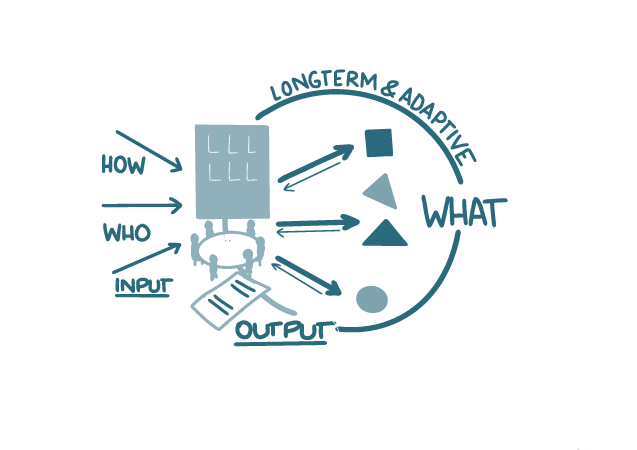
Principle 4
Legitimacy
Read Less
Legitimacy, and the lack of it, is the reason for the failure of so many peacemaking efforts.
For peacemaking to be successful, the long-term legitimacy of all the processes, institutions, powerholders, and laws that deliver and govern peace must be established.
Legitimacy is our lodestar. It is the only way to and sustain peace.

Principle 5
Accountable security
Read Less
There can be no peace without accountable security. All peace process must put an end to hostilities and reduce the risk of recurrent cyclical violence.
Doing this requires accountable security institutions to provide security as a public good, to respect human rights and humanitarian law, and to follow agreed principles governing the use of force in society.
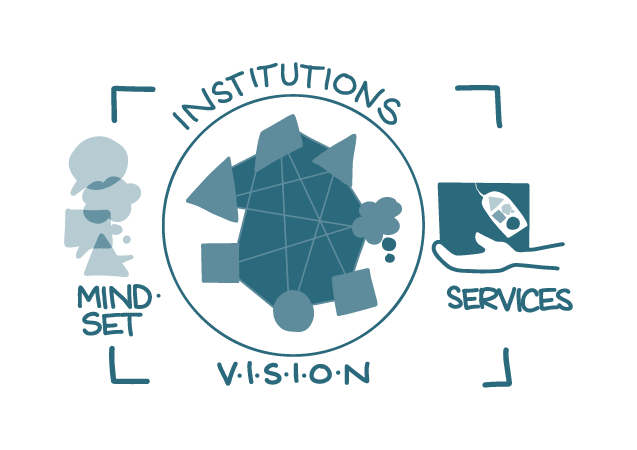
Principle 6
Promoting pluralism
Read Less
Promoting pluralism is about empowering the participation of all actors in delivering and sustaining peace. This goes beyond just inclusion at the negotiation table.
It is critical that all peacemaking efforts ensure fair and equal participation in public life and provide equitable access to institutions and services, irrespective of communal, political, social, economic, and gender divides.
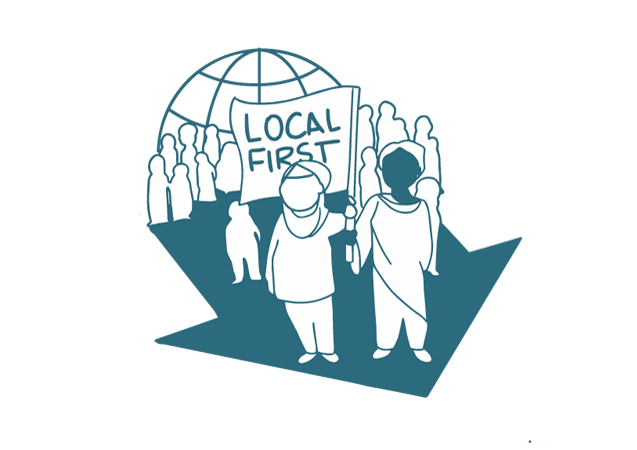
Principle 7
Adopting subsidiarity
Read Less
Adopting subsidiarity is about moving away from universal templates for peacemaking towards approaches that are as local as possible and only as international as necessary.
This does not mean international and national actors are absolved of responsibility, but rather that they embrace a role of responsible oversight that is responsive and accountable to local communities and recognises the primacy of local leadership.
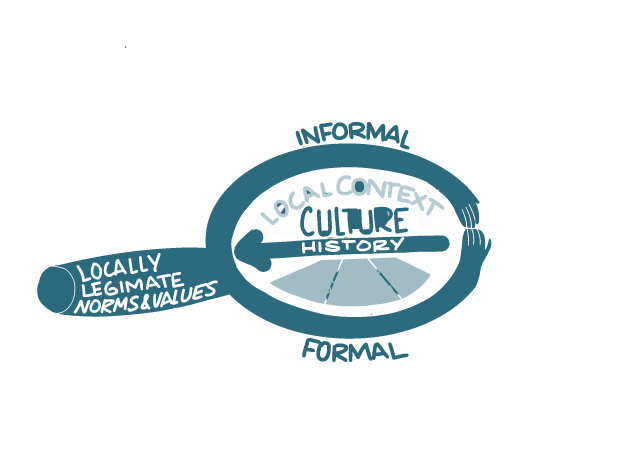
Principle 8
Integrated and hybrid solutions
Read Less
Integrated and hybrid solutions is about understanding that no two peace processes can be the same. Each one must be based on local context, this means deploying solutions that are grounded within local norms, institutions, and traditions, and that harmonise both short- and long-term peacemaking processes.
KEY CONSTITUENTS
Who are the Principles
for Peace for?
Meeting contemporary security challenges while building peaceful states
and societies requires devising new forms of engagement among all
participants in peacemaking.
Key constituencies include:
Government representatives, such as ministerial staff and parliamentarians
Intergovernmental and multilateral organisations
Business and private sector foundations
Security institutions and non-state armed groups where appropriate
Civil society organizations and activists
Academics, researchers and students

Mediators
Media
Other actors involved in peacemaking and peacebuilding

Government representatives, such
as ministerial staff and
parliamentarians

Intergovernmental and
multilateral organisations

Business and private sector
foundations

Security institutions and
non-state armed groups
where appropriate

Civil society organizations
and activists

Academics, researchers and
students

Mediators

Media

Other actors involved in
peacemaking and peacebuilding